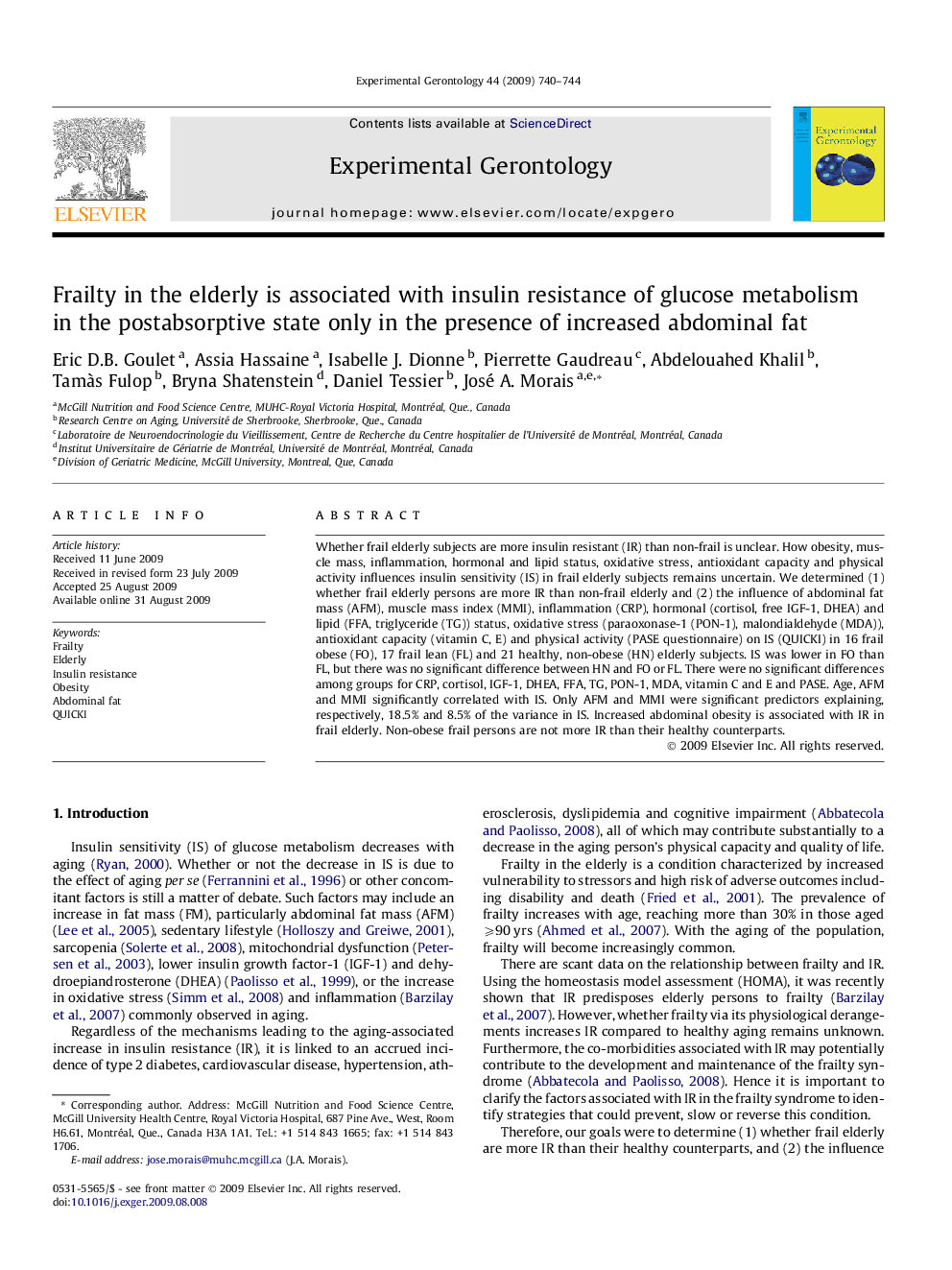| Article ID | Journal | Published Year | Pages | File Type |
|---|---|---|---|---|
| 1906773 | Experimental Gerontology | 2009 | 5 Pages |
Whether frail elderly subjects are more insulin resistant (IR) than non-frail is unclear. How obesity, muscle mass, inflammation, hormonal and lipid status, oxidative stress, antioxidant capacity and physical activity influences insulin sensitivity (IS) in frail elderly subjects remains uncertain. We determined (1) whether frail elderly persons are more IR than non-frail elderly and (2) the influence of abdominal fat mass (AFM), muscle mass index (MMI), inflammation (CRP), hormonal (cortisol, free IGF-1, DHEA) and lipid (FFA, triglyceride (TG)) status, oxidative stress (paraoxonase-1 (PON-1), malondialdehyde (MDA)), antioxidant capacity (vitamin C, E) and physical activity (PASE questionnaire) on IS (QUICKI) in 16 frail obese (FO), 17 frail lean (FL) and 21 healthy, non-obese (HN) elderly subjects. IS was lower in FO than FL, but there was no significant difference between HN and FO or FL. There were no significant differences among groups for CRP, cortisol, IGF-1, DHEA, FFA, TG, PON-1, MDA, vitamin C and E and PASE. Age, AFM and MMI significantly correlated with IS. Only AFM and MMI were significant predictors explaining, respectively, 18.5% and 8.5% of the variance in IS. Increased abdominal obesity is associated with IR in frail elderly. Non-obese frail persons are not more IR than their healthy counterparts.
